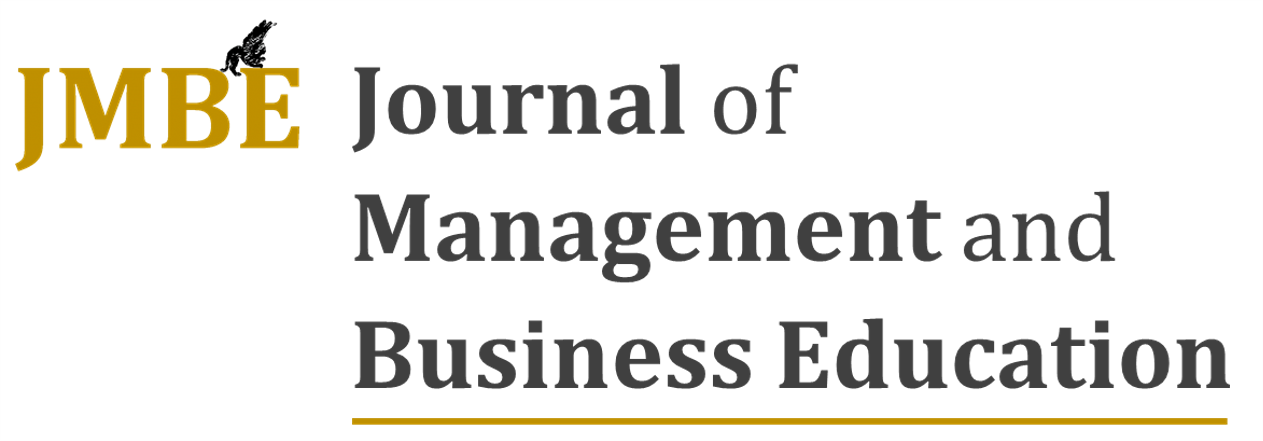Communication undergraduate degrees: between the search for excellence, the conceptual ambiguity and the market dictatorship
DOI:
https://doi.org/10.35564/jmbe.2021.0013Keywords:
communication, public relations, teaching, citizenshipAbstract
We’ll argument in this paper that the area of undergraduate studies that we can consider as belonging to the great area of the communication sciences and, in particular, those areas that have as one of their purposes also the professional training in Corporate Communications / Public Relations, seem to be navigating in a blurriness of both theoretical constructs and purposes, as well as a lack of public recognition. Moreover, it will be argued that the main purpose underlying all definitions should be the old idea from the Enlightenment that the mission of undergraduate studies is, before and above all, the shaping of rational and responsible citizens.
Downloads
References
Cossette, R. (2013). Éthique de la communication appliquée aux relations publiques. Presses de l’université du Québec. https://doi.org/10.2307/j.ctv18ph7td
Diez-Martin, F. (2018). Dónde estamos: Una introducción a la educación en los negocios. Journal of Management and Business Education, 1(1), 1-10. https://doi.org/10.35564/jmbe.2018.0001
Eiró-Gomes, M., Nunes, T. (2014) ‘Relações Públicas/ Comunicação Institucional/ Comunicação Corporativa: três designações para uma mesma realidade?’, Minho: SOPCOM, 1022-1040.
Falconi, T.(2004), Le relazioni pubbliche nelle organizzazioni complesse, Lupetti.
Grice, P. (1989), Studies in the Way of Words, Cambridge MA: Harvard University Press
Grunig, J. (2011) ‘Public relations and strategic management institutionalizing organization-public relationships in contemporary society’ in Central European Journal of Communication, 1, 11-29.
Henri-Levy, B. (2020) Ce vírus qui rend fou, Grasset, Paris.
Lépine, V., Martin-Juchat,F., Miller-Fourrier,C.( 2014) Acteurs de la communication des entreprises et organisations : pratiques et perspectives, Grenoble, Presses universitaires de Grenoble. https://doi.org/10.4000/communication.6926
Lesly, P. (1998) ‘The Nature and Role of Public Relations’ in P. Lesly (ed.), Lesly’s Handbook of Public Relations and Communications, 5th ed., Illinois: NTC Business Books, 3-18.
Ordine, N.(2013) L’utilità dell'inutile, Bompiani, Milano. Result score too low
Porto-Simões, R. (1995) Relações Públicas: Função Política, Summus Ed., São Paulo.
Searle, J. (1984) Minds, Brains and Science, Harvard University Press.
Strike, K. e Soltis, J. (2009). The Ethics of Teaching. 5th ed. Teachers College.
White, J., L’Etang, J. and Moss, D. (2003) ‘The United Kingdom: Advances in practice in a restless Kingdom’, in K. Sriramesh and D. Verčič (eds) Global Public Relations Handbook, Mahwah, NJ: Lawrence Erlbaum Associates, 381-406. https://doi.org/10.4324/9780203889374.ch19
Morin, E. (2000). Les sept savoirs nécessaires à l’éducation du futur, Seuil.
Morin, E. (2020). Changeons de voie: leçons du coronavirus, Denoêl.
Pinker, S. (2018)Enlightenment Now: The Case for Reason, Science, Humanism, and Progress, Penguin Books.
Treadwell,D., Davis, A. (2019) Introducing Communication Research: paths of inquiry, 4th ed., Sage Publications
Wolton, D. (2013). « Conclusion. Pour un manifeste de l'indiscipline », Hermès, La Revue, 2013/3(n°67),p.210-222. https://doi.org/10.4267/2042/51919
Wolton, D. (2020).Vive l’Incommunication - la victoire de l’Europe. Éditions François Bourin.
Woot, P.(2013) Repenser L’Entreprise – Compétitivité, technologie et société. Académie royale de Belgique, v. 20.
Woot, P. (2014) L’innovation, Moteur de Leconomie – Destruction Créatrice, L’économie de marché, Est-elle juste?. Académie royale de Belgique, v. 2. https://doi.org/10.3917/riej.074.0211
Downloads
Published
How to Cite
Issue
Section
License
Copyright (c) 2023 Journal of Management and Business Education

This work is licensed under a Creative Commons Attribution-NonCommercial-ShareAlike 4.0 International License.
License terms at: https://creativecommons.org/licenses/by-nc/4.0/legalcode




